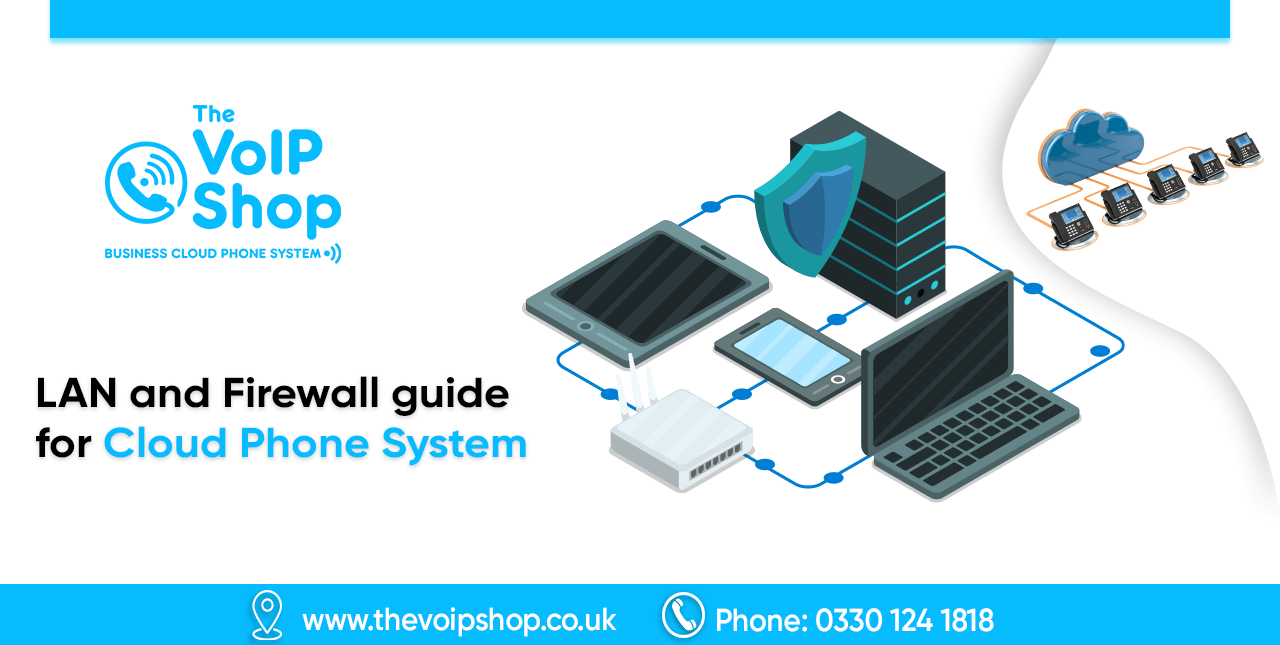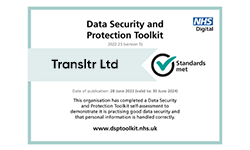Having Problems with SIP Calls Dropping After 15 Minutes? Here’s What to Do
At The VoIP Shop, we understand the frustration of calls dropping after 15 minutes. Our SIP solutions are tailored to address this common issue, providing reliable configurations and expert support to keep your calls connected beyond the typical cut-off time. With our troubleshooting expertise and advanced call management tools, your business can experience uninterrupted communication and improved call reliability. Let us help ensure that every call runs smoothly,
keeping you connected when it matters most.
If you’re experiencing SIP calls dropping after exactly 15 minutes, you’re not alone. Many UK businesses encounter this frustrating issue, which often stems from network settings or SIP configurations. Frequent call disconnections not only disrupt communication but can also impact customer satisfaction and business productivity. In this guide, we’ll cover the common causes behind these dropped calls and provide straightforward solutions to keep your calls connected, ensuring your business communication remains smooth and uninterrupted.
Key Takeaways:
- Why Do SIP Calls Drop After 15 Minutes?: This common problem usually results from specific settings like session timers, NAT configurations, or firewall restrictions that limit call duration.
- How to Fix Call Drop Issues: Adjusting settings like SIP ALG, NAT refresh timers, and session timers can help prevent calls from cutting off. These tweaks keep your SIP connections stable and reduce disconnection risks.
- Troubleshooting Steps for Quick Fixes: Simple adjustments, such as disabling SIP ALG on your router or increasing the NAT timeout, can often resolve the issue without additional tools or expert help.
- When to Contact Support: If call drops continue despite these adjustments, it may be best to reach out to your SIP provider for tailored assistance based on your network setup.
Say goodbye to 15-minute call drops—boost call reliability now with proven SIP fixes from The VoIP Shop.
Why Do SIP Calls Drop After 15 Minutes?
Experiencing call drops after 15 minutes can be a common and frustrating problem with SIP systems. Understanding the root causes can help fix the issue and keep your calls connected longer. Here are some of the main reasons this happens:
Session Timers and Call Drops
Session timers are built-in settings that control how long a call stays active before it checks for a response to continue. If these timers are too short or not synced between devices, calls can disconnect automatically once the timer expires. Adjusting these settings can often extend call duration.
NAT (Network Address Translation) Issues
Network Address Translation, or NAT, is a system that helps manage network traffic. However, with SIP, NAT can sometimes interfere with calls by not keeping the connection open, causing calls to drop. Properly configuring NAT settings helps ensure your SIP calls remain stable.
Firewall or Router Configuration Problems
Firewalls and routers protect your network, but if not set up correctly, they can also interfere with SIP calls. Settings like SIP ALG (Application Layer Gateway) on routers may need to be disabled to keep calls from disconnecting after a fixed period. Checking your router’s SIP settings can often solve these issues.
Carrier Restrictions and Call Limits
Some service providers have call length limits that may cut off SIP calls after a certain time, often due to network policies or security measures. If this is the cause, your provider can offer specific guidance or alternative settings.
Key Terms Related to SIP Calls
| Term | Description |
|---|---|
| SIP ALG | A router setting that manages SIP traffic but can sometimes cause call issues. Often recommended to be disabled for stable calls. |
| NAT (Network Address Translation) | A network process that helps manage IP addresses for devices on a network, which is crucial for SIP traffic stability. |
| Session Timers | Settings that control how long a SIP call remains active before needing a check. Increasing the timer can help prevent calls from cutting off unexpectedly. |
End those 15-minute call cut-offs—secure stable, reliable calls with expert SIP solutions from The VoIP Shop!
Common Fixes for SIP Call Disconnection Issues
If your SIP calls are cutting off unexpectedly, a few basic adjustments can often solve the problem. Here’s a list of practical steps to help keep your calls connected without interruption.
Check Your Router’s SIP ALG Setting
Many routers come with a SIP ALG (Application Layer Gateway) setting, intended to manage SIP traffic. However, this feature can often cause issues with call stability. To fix this, log into your router settings and look for the SIP ALG option. If it’s enabled, turn it off and test your calls to see if the problem improves.
Adjust Session Timers
Session timers help manage call durations by checking if the connection is still active. However, if the timer is set too low, it can disconnect calls early. Access your SIP system or VoIP settings to increase the session timer, which will help extend call duration and prevent abrupt disconnections.
Configure Keep-Alives in Your SIP Settings
Keep-alive messages are tiny signals sent periodically to keep a SIP connection open. Enabling keep-alives in your SIP settings helps maintain the connection, reducing the chances of unexpected call drops.
Verify NAT Configuration
Network Address Translation (NAT) helps manage IP addresses, but improper NAT settings can cause call issues. Check that NAT is configured correctly on both your router and SIP system to ensure stable connections.
Test Your Firewall Settings
Firewalls protect your network but can sometimes block the SIP ports needed for your calls. Make sure your firewall is configured to allow SIP traffic on the necessary ports to avoid call disruptions.
Fix Call Drop Issues Quickly with The VoIP Shop’s Proven SIP Solutions
When to Contact Your SIP Provider?
If you’ve tried adjusting your settings and calls are still dropping, it may be time to reach out to your SIP provider. They can provide support and check if there are specific requirements or network issues affecting your connection.
Specific Network Requirements from Providers
Some SIP providers have unique network requirements that may need custom configurations. Your provider can guide you on specific settings, such as ensuring consistent NAT is enabled, the NAT refresh timer is set correctly, and Single Sign-On authentication is disabled if necessary. These adjustments can make a difference in preventing call dropouts.
Check for Known Service Issues
Before diving into more technical adjustments, it’s a good idea to contact your provider to see if they are experiencing any service disruptions. Network outages or maintenance on their end can sometimes cause call interruptions, and they may have insights on how to handle temporary issues.
FAQ
Frequently Asked Questions about SIP Call Cut
- Why do calls disconnect at exactly 15 minutes?
This usually happens due to session timer settings or NAT timeout limits. Adjusting these settings can often help keep calls connected longer.
2. What is SIP ALG, and should it be turned off?
SIP ALG (Application Layer Gateway) is a router feature that can interfere with SIP traffic. Turning it off often improves call stability.
3. How can I tell if my firewall is causing issues with SIP?
If calls drop or fail to connect, your firewall may be blocking SIP ports. Check that the necessary SIP ports are open.
4. What does adjusting session timers do?
Session timers control how long a call stays active. Increasing the timer helps prevent calls from disconnecting too soon.
5. How do I disable SIP ALG on my router?
Log into your router settings, locate the SIP ALG option (often under "Advanced" settings), and switch it off.
6. Why is NAT important for SIP calls?
NAT settings affect how data travels across networks. Proper NAT configuration is key to maintaining stable SIP calls.
7. What are keep-alives, and how do they help with SIP calls?
Keep-alives are small signals sent to keep the connection open. They help prevent calls from disconnecting due to inactivity.
8. Can my internet speed affect SIP call quality?
Yes, slow internet can lead to poor call quality or dropped calls. A stable, high-speed connection is ideal for SIP.
9. When should I contact my SIP provider?
If troubleshooting hasn’t fixed the issue, contact your provider for specific guidance or to check for network issues on their end.
10. Are there any specific ports I should check for SIP?
Common SIP ports are 5060 and 5061. Make sure these are open on your firewall to support SIP calls.
11. Why do some routers have SIP ALG enabled by default?
Many routers have SIP ALG (Application Layer Gateway) enabled by default to manage and modify SIP traffic, which can help in specific network configurations. However, SIP ALG can sometimes interfere with SIP calls by altering the data packets, leading to issues like call drops. For most SIP applications, disabling SIP ALG is recommended to improve call stability.
12. Can I adjust session timers if I’m not an administrator?
Session timers are typically found in the advanced settings of your SIP or VoIP system and often require administrator access to adjust. If you don’t have admin rights, consider reaching out to your IT team or SIP provider to help modify session timers, as adjusting these settings can help prevent calls from disconnecting prematurely.
13. Are there different SIP settings for specific router brands?
Yes, different router brands may have unique names and configurations for SIP-related settings. For instance, some Cisco routers label SIP ALG as “SIP Transformation.” Checking your router’s user manual or consulting online support resources specific to your brand can help you locate and adjust these settings accurately.
14. Do I need to adjust firewall settings if I use a VPN with SIP?
Yes, when using a VPN, you may need to adjust firewall settings to allow SIP traffic to pass through the VPN connection. Firewalls can sometimes block SIP traffic when routed through a VPN, so it’s recommended to check that your firewall is configured to permit the necessary SIP ports to ensure stable call quality.
15. What are the key SIP ports, and why are they important?
Common SIP ports include 5060 and 5061, which handle SIP signaling necessary for call setup and management. Ensuring these ports are open on your firewall allows SIP traffic to pass through smoothly, preventing issues like call drops or failed connections. Keeping these ports open and properly configured is essential for maintaining reliable SIP calls.
Conclusion: Simple Steps to Keep Your SIP Calls Connected
At The VoIP Shop, we understand how frustrating it is when calls disconnect unexpectedly. By taking a few simple steps, you can reduce these disruptions and enjoy more stable SIP connections. Start by checking essential settings, such as turning off SIP ALG on your router, adjusting session timers, and enabling keep-alives. Don’t forget to verify NAT and firewall settings, as these play an important role in maintaining steady connections.
If these adjustments don’t fully resolve the issue, our team at The VoIP Shop is here to help. We can provide guidance on specific network requirements or assist with troubleshooting. Ensuring your calls remain connected is our priority, so you can focus on your business communication with confidence.
Ready to improve your call experience? Contact The VoIP Shop for expert support and reliable solutions.

























